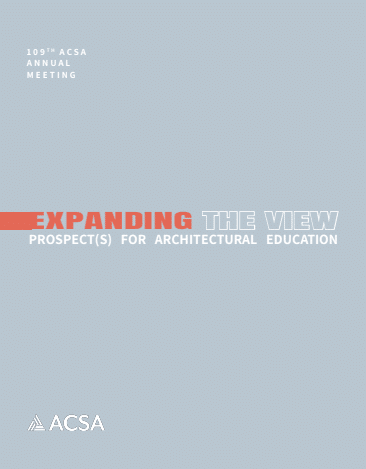Author(s): John Reynolds
Bernard Rudofsky’s 1964 MOMA exhibition Architecture Without Architects (Fig.1) launched global interest in the area of vernacular or “nonpedigreed” architecture. Rudofsky explored anonymous, spontaneous, and indigenous architecture as he noted that existing historical narratives focused on the “privileged – the houses of true and false gods, of merchant princes and princes of the blood – with never a word about the houses of lesser people.”1 He and Pietro Belluschi, argued that vernacular buildings were communal art, a collective enterprise that demonstrated amenable relationships to their surroundings, climate, and topography.
https://doi.org/10.35483/ACSA.AM.109.40
Volume Editors
ISBN
978-1-944214-37-1

 Study Architecture
Study Architecture  ProPEL
ProPEL 
